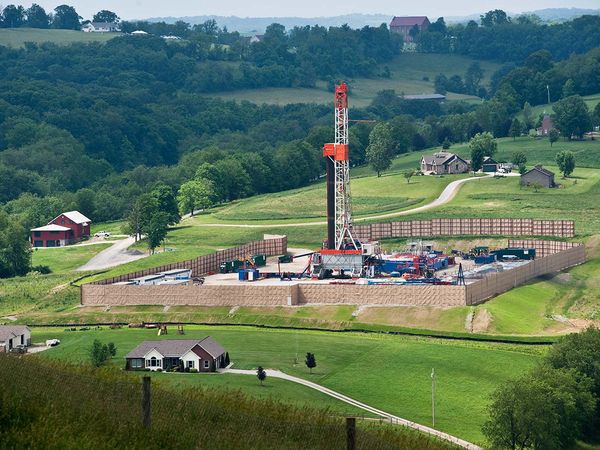Commissioners’ Group Supports Gas Fee Compromise

From Potter County Today
 The County Commissioners Association of Pennsylvania (CCAP) has announced its support for the conference committee report on House Bill 1950, legislation which would provide funding to address local impacts resulting from exploration and development of Marcellus Shale and other natural gas reserves. The bill’s long-debated “impact fee,” debated as an alternative to the hotly debated severance tax on gas production, is seen by many CCAP members as the best county and local governments can hope for, given the current political climate in Harrisburg.
The County Commissioners Association of Pennsylvania (CCAP) has announced its support for the conference committee report on House Bill 1950, legislation which would provide funding to address local impacts resulting from exploration and development of Marcellus Shale and other natural gas reserves. The bill’s long-debated “impact fee,” debated as an alternative to the hotly debated severance tax on gas production, is seen by many CCAP members as the best county and local governments can hope for, given the current political climate in Harrisburg.
Counties and municipalities do not currently receive direct revenues from Marcellus and other shale gas producers, as they do from other mineral operations, based on a 2002 Pennsylvania Supreme Court decision that exempted oil and gas from local property taxes. Yet counties and municipalities do provide services and incur costs based on gas development, including highway and bridge infrastructure, emergency management planning and response, human services, record keeping and others.
HB 1950 authorizes counties with shale gas to levy an impact fee on active wells, which would then be administered by the Public Utility Commission. A base fee of $45,000 to $60,000, depending on the price of natural gas, would be imposed on each bore hole in the first year of drilling, and modified on a declining schedule by price factors and inflation over a 15-year period per bore hole.
The bill earmarks a portion of the fee to a statewide distribution for conservation districts, the Fish and Boat Commission, the Public Utility Commission, the Department of Environmental Protection, the Pennsylvania Emergency Management Agency, the Department of Transportation, and the State Fire Commissioner, and then sets aside 60 percent of the remaining proceeds for impacted township or borough governments.
Counties and municipalities are permitted to use funds for highway and bridge infrastructure, emergency management, public safety, records management and GIS systems, affordable housing, water, sewer and storm water infrastructure, environmental programs including agricultural preservation and recreation, and tax reductions and homestead exclusions.
Potter County Today is a timely information site courtesy of the Potter County Commissioners. Reprinted with Permission.
